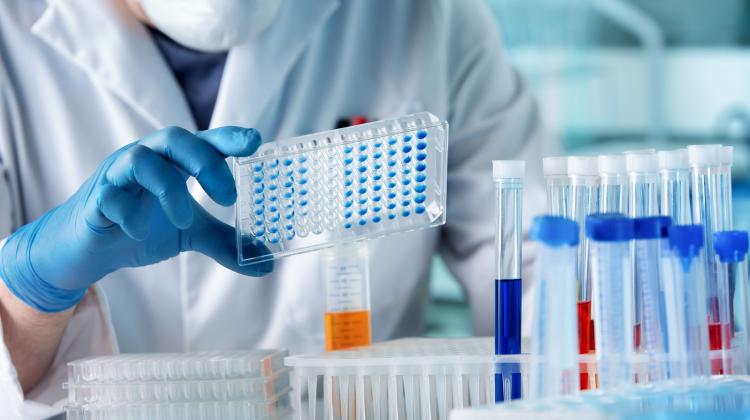Cholesterol from eggs - not so black as it was painted

Although one chicken egg contains an acceptable daily dose of cholesterol, a healthy person can safely eat three eggs in a day, and occasionally - even more. Cholesterol from eggs is metabolised differently than that produced by the human liver - explain experts from WULS-SGGW.
The average chicken egg (weighing 50 g) contains 170-185 g of cholesterol. Should you be afraid of it? According to Dr. Ewelina Hallmann from the Functional Food, Ecological Food and Commodities, WULS-SGGW - absolutely not. Formerly it was recommended not to eat eggs too often. Now, however, we know that eggs are not as unhealthy as they once seemed.
According to the WULS-SGGW release, although one chicken egg contains an acceptable daily dose of cholesterol, healthy people can safely eat three eggs per day. Why? Because egg cholesterol is metabolised differently than that produced by our liver, and it will not deposit in our arteries. Occasionally, you can even eat more chicken eggs in one day.
There are some exceptions: people with hypercholesterolemia and those who consume a lot of animal products (sausages, meat) should watch the amount of eggs in their diet.
Experts from WULS-SGGW emphasise that egg yolk is rich in fat. Therefore, people who use low fat diets, who want to eat eggs, should eat only the white. "Unfortunately, fat is a carrier of taste, so scrambled eggs made from whites only will no longer be so delicious" - the university representatives pointed out. However, they added that egg yolk contains many valuable substances, such as choline or lutein.
Choline (vitamin B4) is a phospholipid compound from which acetylcholine is produced. The latter is an important neurotransmitter that accumulates on synapses of nerve cells. The more acetylcholine on synapses, the faster the nerve impulse runs from cell to cell. This helps us to be more creative and solve problems faster. Thanks to acetylcholine, the nervous system works much better. It is also supported by other substances contained in yolks - lecithin that improves memory and vitamins B that regenerate the nervous system.
Another very valuable substance contained in yolks is lutein, which, among other things, affects the correctness of vision. It is also a particularly important chemical for women - it affects the length of the luteal phase of the monthly cycle, and fertility depends on its normal level. Lutein is also a very powerful antioxidant.
The WULS-SGGW also explained why egg yolks have different shades. It depends on the beta-carotene content. The higher it is, the intensive, orange the colour. The source of beta-carotene is in turn the feed that the chickens receive. Orange yolks are found in eggs from organically grown hens, which have a lot of green plants rich in beta-carotene in their diet. If eggs from conventionally farmed hens have an intensive colour, synthetic dyes (beta-carotene) have probably been added to their feed.
From a biological point of view, the egg is a reproductive cell. The WULS-SGGW release quoted Prof. Stanisław Berger, who spoke about chicken eggs: "There could not be anything wrong with the egg, because it is the beginning of a new life: there are no toxic substances in it, because the young bird that grows in it gets only what\'s best from nature: nutrients, vitamins and other valuable ingredients".
PAP - Science and Scholarship in Poland
lt/ pmw/ zan/ kap/
tr. RL
Przed dodaniem komentarza prosimy o zapoznanie z Regulaminem forum serwisu Nauka w Polsce.

















